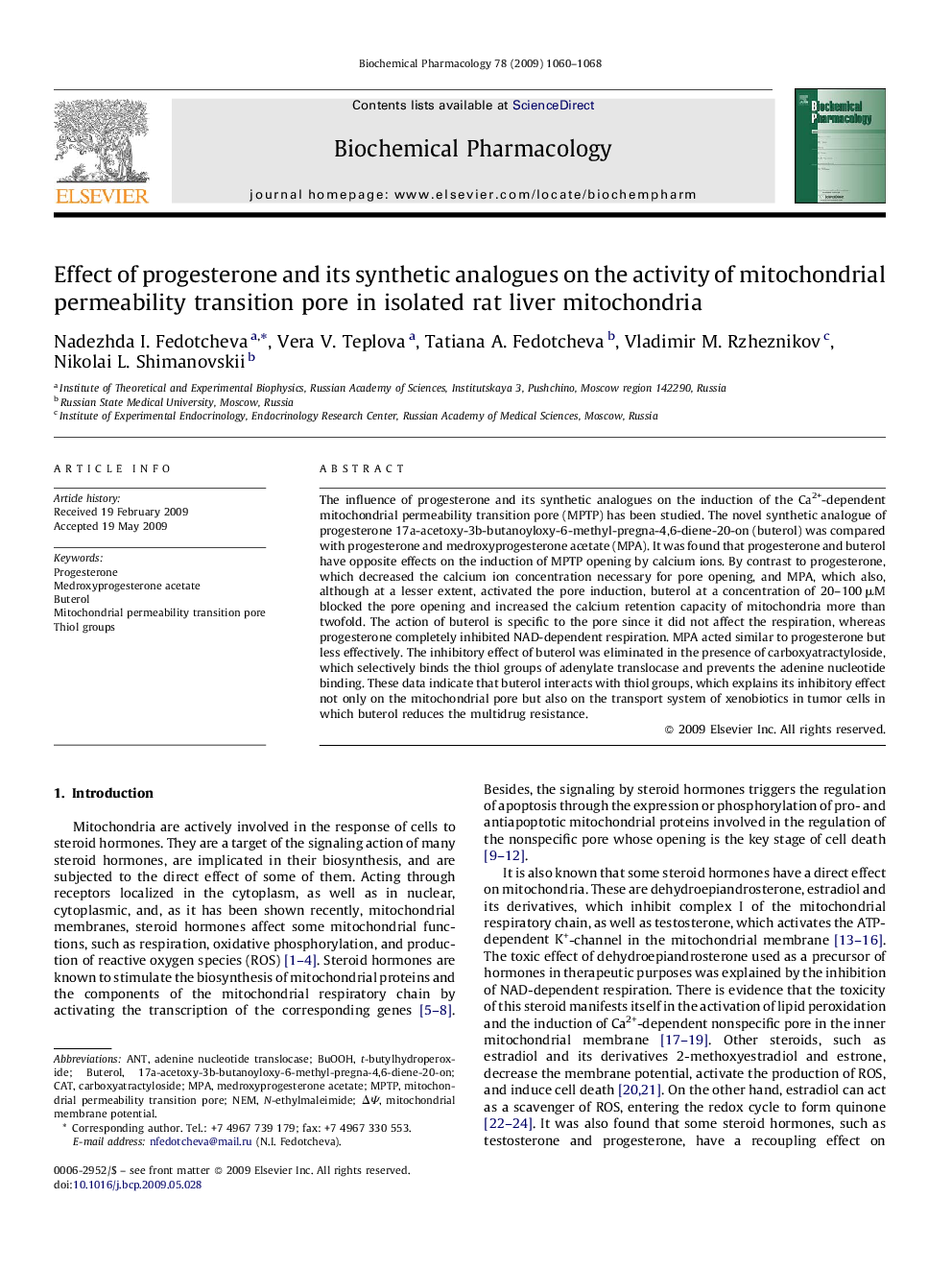| Article ID | Journal | Published Year | Pages | File Type |
|---|---|---|---|---|
| 2514027 | Biochemical Pharmacology | 2009 | 9 Pages |
The influence of progesterone and its synthetic analogues on the induction of the Ca2+-dependent mitochondrial permeability transition pore (MPTP) has been studied. The novel synthetic analogue of progesterone 17a-acetoxy-3b-butanoyloxy-6-methyl-pregna-4,6-diene-20-on (buterol) was compared with progesterone and medroxyprogesterone acetate (MPA). It was found that progesterone and buterol have opposite effects on the induction of MPTP opening by calcium ions. By contrast to progesterone, which decreased the calcium ion concentration necessary for pore opening, and MPA, which also, although at a lesser extent, activated the pore induction, buterol at a concentration of 20–100 μM blocked the pore opening and increased the calcium retention capacity of mitochondria more than twofold. The action of buterol is specific to the pore since it did not affect the respiration, whereas progesterone completely inhibited NAD-dependent respiration. MPA acted similar to progesterone but less effectively. The inhibitory effect of buterol was eliminated in the presence of carboxyatractyloside, which selectively binds the thiol groups of adenylate translocase and prevents the adenine nucleotide binding. These data indicate that buterol interacts with thiol groups, which explains its inhibitory effect not only on the mitochondrial pore but also on the transport system of xenobiotics in tumor cells in which buterol reduces the multidrug resistance.
Graphical abstractFigure optionsDownload full-size imageDownload as PowerPoint slide
